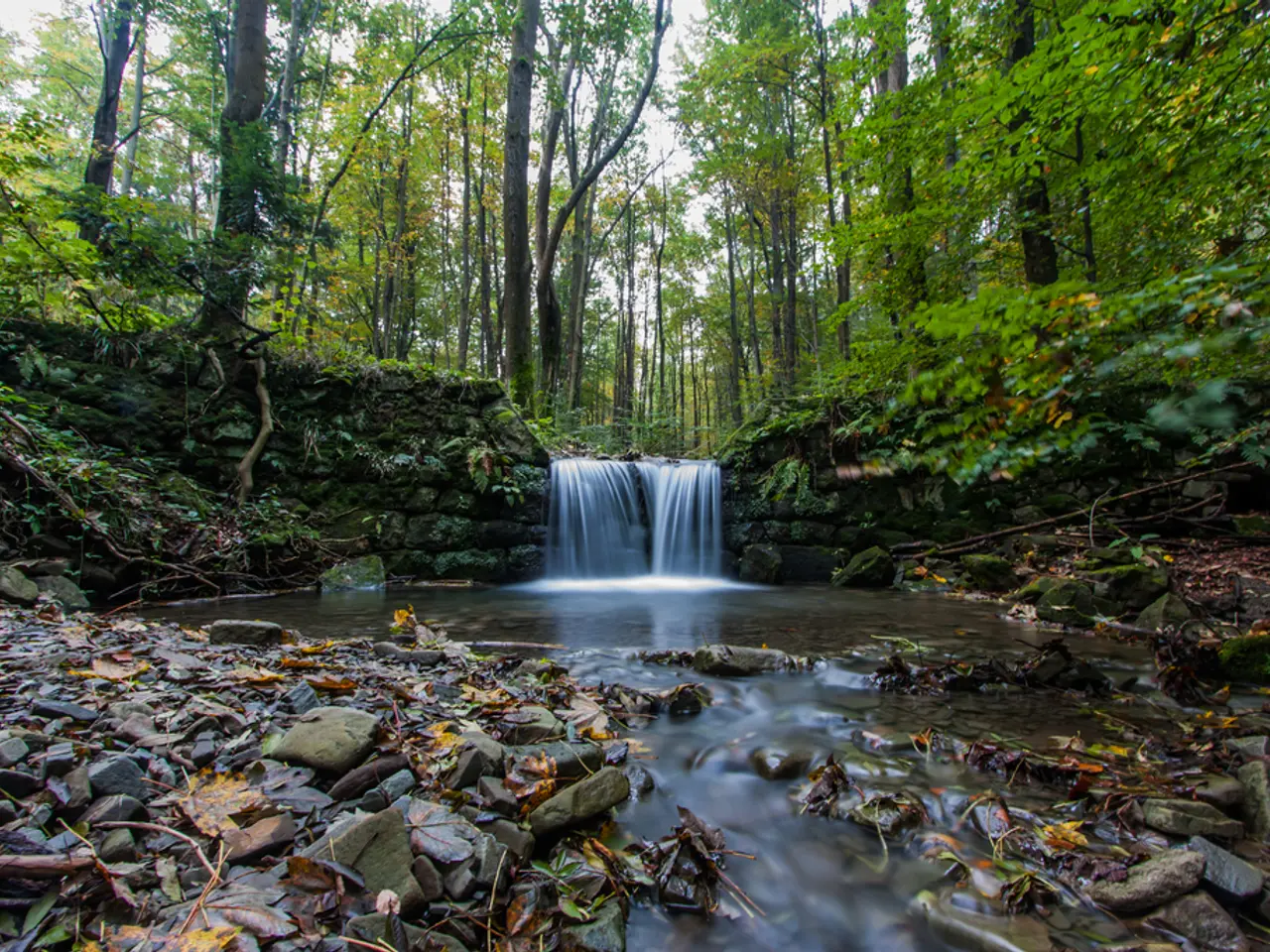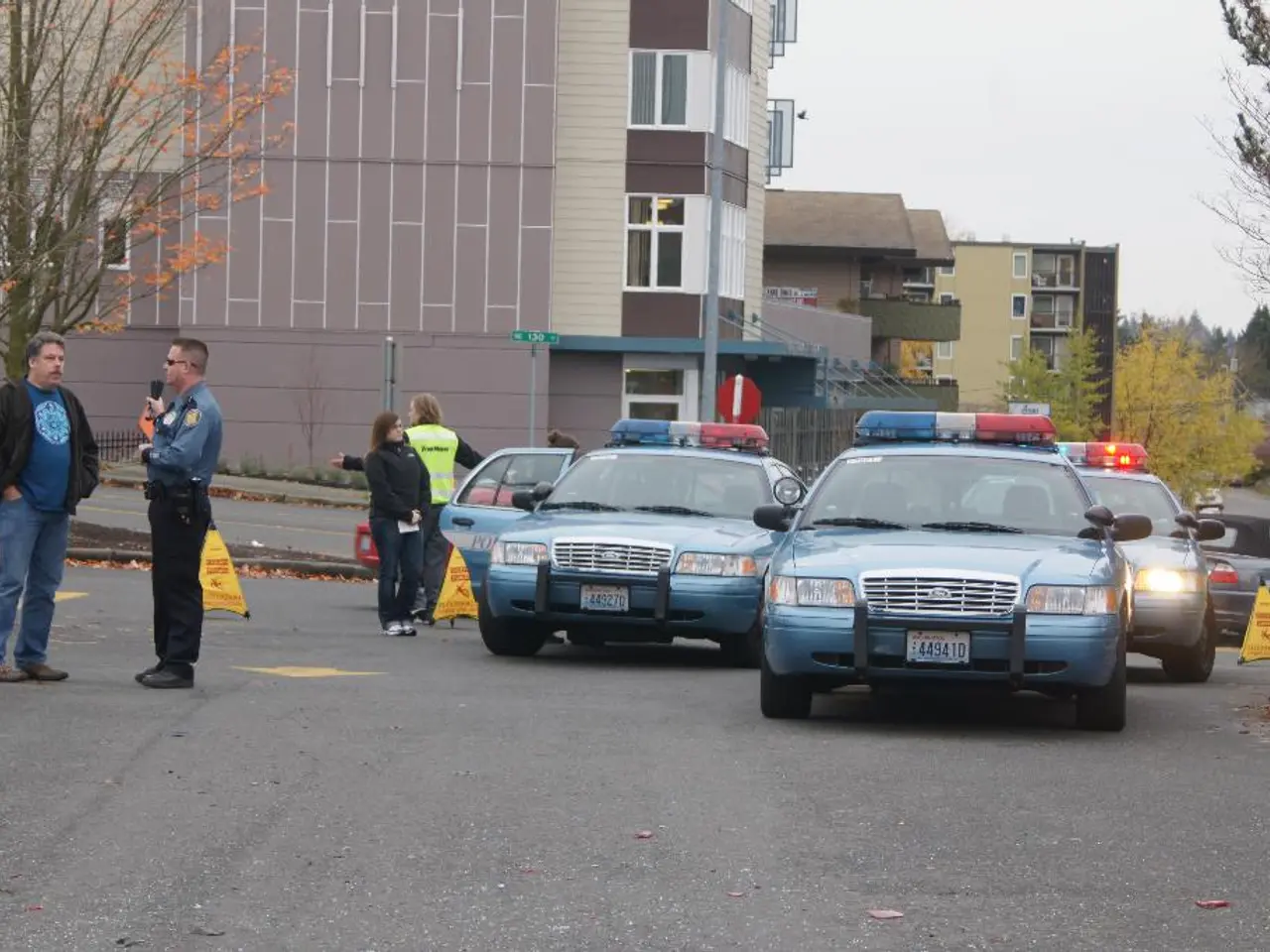Persistent water scarcity persists
In the heart of Germany, the District of Arnsberg is currently grappling with an unusual situation. The region is experiencing a prolonged drought, leading to a significant drop in water levels in local streams and brooks. This drop in water levels severely restricts the habitats of fish, small creatures, and plants, putting already stressed ecosystems under even more pressure.
The District Government has closely monitored the water levels and, as a precautionary measure, has issued a warning asking the population to carefully consider and, if possible, refrain from water withdrawals. This includes water withdrawals permitted without a permit, such as by residents or property owners.
The current low water levels are unusually early in the year. For weeks, there have been no significant rainfalls, causing water levels to drop continuously. As a result, water levels are likely to continue to drop, and the District Government is regularly checking if additional measures are necessary.
However, at present, Arnsberg itself has not publicly highlighted any unique or emergency water conservation measures in direct response to ongoing drought conditions within the available documentation. For the most accurate and updated local information, consulting the official Arnsberg municipal website or local press would be necessary.
On a broader scale, persistent drought has led various municipalities across Germany to implement water conservation strategies. These strategies include public awareness campaigns, restrictions on non-essential water use (e.g., garden watering, car washing), and the promotion of rainwater harvesting. However, these are not specifically cited for Arnsberg in the most recent sources.
The German Weather Service does not foresee any immediate weather change, and sustained, heavy rainfalls that could raise water levels are not expected. Despite this, the District Government is urging citizens to do their part in conserving water to protect the local animal and plant life.
Such levels are typically reached only by late August or September. The District Government is also considering the possibility of introducing an ordinance that restricts water withdrawal from these waters to protect them. This could include restrictions on water usage for non-essential purposes.
In the meantime, companies in Arnsberg, such as those with high environmental or operational demands, may incorporate water and resource-saving practices as part of their business models. However, there is no explicit documentation of city-wide drought-related water conservation protocols in recent publications.
Across Germany, there is growing emphasis on citizen participation in environmental and climate policy, including recommendations for resource management and sustainability. However, these initiatives are not exclusively focused on water conservation and are not specifically linked to Arnsberg.
As the situation in Arnsberg continues to evolve, it is essential for the community to come together and conserve water to ensure the health and wellbeing of the local ecosystem. For updates on specific measures being taken, residents are encouraged to stay informed through official channels.
- The District Government, amid the ongoing drought, is contemplating the introduction of an ordinance limiting water withdrawal to preserve the local waterways, especially since the usual low water levels are increasingly seen by late August or September.
- In light of the persistent drought across Germany, it's crucial for Arnsberg inhabitants to support environmental science and climate-change efforts by conserving water, as this could help protect wildlife, trees, and other flora impacted by the water shortage, until more definitive measures can be taken.








